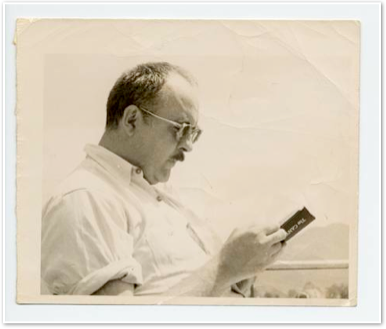UNIT 2: WHAT IS SEEN
READING:
-- "Vortext" by Ezra Pound (JR)
The vorticist relies on this alone : on the primary pigment of his art, nothing else. Every
conception, every emotion presents itself to the vivid conscious in some primary form
-Ezra Pound
-- "Canto XXXIX" by Ezra Pound (JR)
-- "Projective Verse" Charles Olson (JR)
And the line comes, (I swear it) from the breath, from the breathing of the man who writes, and thus is, it is here that, the daily work, the WORK, gets in, for only he, the man who writes, can declare, at every moment, the line its metric and its ending—where its breathing, shall come to, termination.
–Charles Olson
–Charles Olson
It is the advantage of the typewriter that, due to its rigidity and its space precisions, it can, for a
poet, indicate exactly the breath, the pauses, the suspensions even of syllables, the juxtapositions even of parts of phrases, which he intends. For the first time the poet has the stave and the
bar a musician has had. For the first time he can, without the convention of rime and meter,
record the listening he has done to his own speech and by that one act indicate how
he would want any reader, silently or otherwise, to voice his work. –Charles Olson
WRITING:
-- thinking about what is seen, and how everybody is doing everything, about how to “use the machine as a scoring to [ones] own composing, as a script to its vocalization,” consider if “not the eye but the ear was to be [verse’s] measurer.” and recall the push towards the ideogramatic and objectism: a poem that presents, rather than comments upon. in other words, compose a piece inspired by Pound and/or Olson.
TERMS:
Imagism, Vorticism, materials, "projective verse," synchronicity, consciousness, composition by field, the object
Sept 21 Imagism, Vorticism, Objectism






